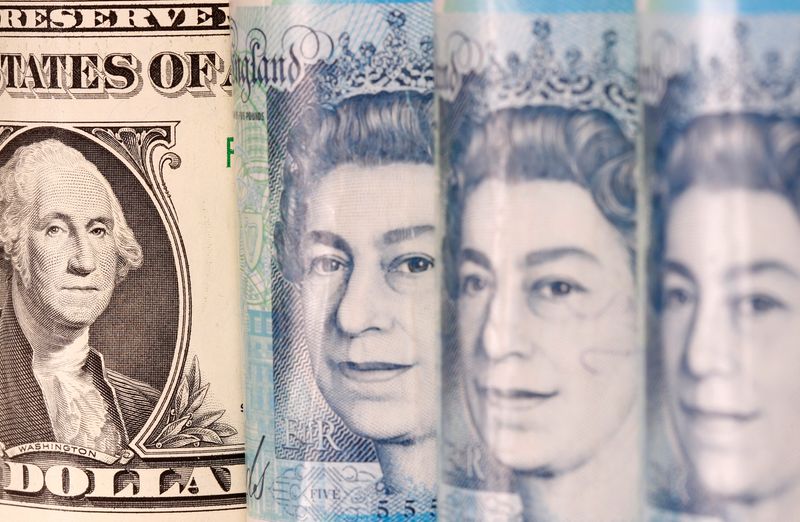
By Amanda Cooper
LONDON (Reuters) – The pound headed for its greatest weekly loss since January on Friday, underneath stress from weak UK financial knowledge and a surging greenback that’s getting a carry from buyers’ conviction that Donald Trump’s insurance policies will drive up U.S. development and inflation.
Britain’s financial system contracted unexpectedly in September and development slowed to a crawl over the third quarter, knowledge confirmed on Friday.
Sterling was unchanged on the day at $1.26795, round its lowest since Might and set for a 2% decline this week, its largest weekly loss since January.
President-elect Trump has vowed to levy hefty tariffs on the imports of a few of the United States’ greatest buying and selling companions, whereas on the identical time chopping taxes at house and loosening a raft of laws on something from vitality to cryptocurrencies.
The possible influence is an increase in U.S. inflation and a potential enhance to home development, which has despatched the greenback to its highest in round a 12 months and eroded the pound’s erstwhile energy towards the U.S. foreign money.
Sterling has turned unfavorable on the 12 months towards the greenback for the primary time since July, down 0.4%. For many of 2024, it has been the best-performing main foreign money, on the grounds that UK rates of interest will take longer to fall meaningfully than U.S. ones.
With the Federal Reserve wanting more and more prone to reduce charges solely progressively, given the outlook for a high-inflation, high-growth macro backdrop, the greenback may have extra yield enchantment than the pound.

Cash markets present merchants suppose the Financial institution of England is anticipated to chop UK charges to round 2% by subsequent December, in contrast with a projected 3.84% from the Fed.
“We consider that if UK financial knowledge continues to disappoint, the BoE could change into extra targeted on reviving development,” BBVA (BME:) strategist Roberto Cobo mentioned.